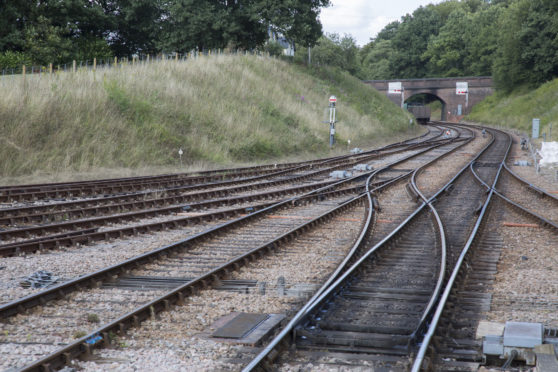
Detectives are investigating a sabotage attempt on railway lines in England ‘relating to Brexit’.
British Transport Police (BTP) say two ‘malicious’ devices were placed on railway tracks in Cambridgeshire and Nottinghamshire.
It is believed they were intended to cause disruption on the lines in a pro-Brexit protest.
A statement from BTP said that the items failed to disrupt services as intended, and that detectives are now working closely with the rail industry to investigate the incidents.
The devices reportedly had notes attached to them, one saying “Leave means leave” and another making reference to bringing the country “to its knees”.
ACC Sean O’Callaghan of BTP said: “This was a serious and deliberate attempt by someone to cause significant sabotage and disruption to Britain’s rail network.
“We are urgently investigating the circumstances behind both incidents and are working extremely closely with our national partners, including the rail industry.
“It is important to highlight that these acts were intended only to delay services and not cause damage to the infrastructure, however this failed on both occasions.
“The railway has a number of substantial safeguards in place to prevent and detect this type of sabotage and we are now working tirelessly to identify those responsible.”
O’Callaghan added: “We’re are currently keeping an open mind on why someone would put their life at risk to place these items on a live railway, however our early assessment has led us to believe it relates to Britain’s exit from the European Union.
“We’ll continue to monitor this situation extremely closely and have circulated advice to rail operators and indeed Network Rail.”
Anyone with information is urged to contact British Transport Police by sending a text to 61016 or by calling 0800 40 50 40.

Enjoy the convenience of having The Sunday Post delivered as a digital ePaper straight to your smartphone, tablet or computer.
Subscribe for only £5.49 a month and enjoy all the benefits of the printed paper as a digital replica.
Subscribe